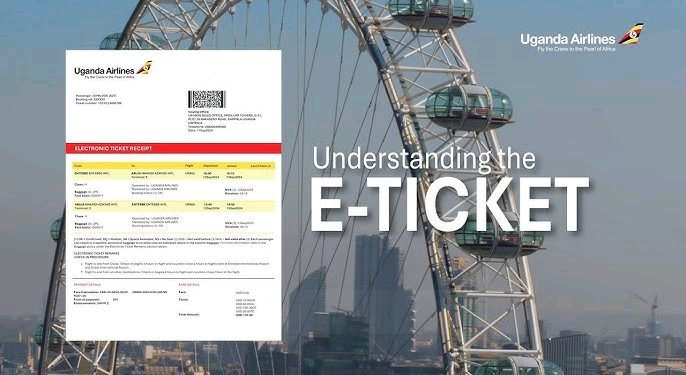
Uganda Airlines is once again under intense scrutiny after a damning audit revealed that more than USD 27 million (approximately Shs 103 billion) in passenger ticket sales is missing—nowhere to be found in the airline’s official bank accounts. The revelation raises serious questions about internal controls, accountability, and potential large-scale fraud within the national carrier.
According to the Special Audit Report on Revenue Management at Uganda National Airlines Company Limited (UNACL), auditors discovered an alarming gap between the revenue recorded in the airline’s ticketing system and the funds actually deposited into its bank accounts. The audit found that thousands of Passenger Name Record (PNR) transactions—each representing a paid ticket—could not be reconciled with corresponding bank entries.
“PNRs are a critical component of airline revenue tracking. Each one should correspond directly with a bank deposit,” the report explains. “Yet in this case, millions of dollars in PNR-linked transactions could not be traced in the airline’s financial records.”
The audit found that USD 27,171,362 worth of ticket sales simply vanished from the trail—neither reflected in the bank statements nor accompanied by adequate reconciliation records. This missing money isn’t a one-off anomaly, but rather spans multiple financial years, suggesting a systemic failure in revenue management.
A System Crumbling From Within?
The absence of bank entries for PNRs undermines the entire revenue assurance process. Without these links, the management cannot confirm whether funds were ever received, lost due to negligence, or deliberately diverted. Auditors were blunt in their warning: unless the airline urgently recovers and reconciles these funds, it risks losing them permanently to fraud, embezzlement, or collusion.
Management at Uganda Airlines acknowledged the issue but attributed the problem to resource constraints and technological weaknesses.
“Reconciling PNR data to bank statements has been a challenge,” the airline stated in response to the audit. “We are dealing with limited staff and weak IT systems. The manual tracking process is prone to errors.”
Despite this admission, the airline assured auditors it would implement better controls and invest in a proper revenue accounting system going forward. However, critics are not convinced.
Deliberate Loopholes—or Just Negligence?
A growing number of observers believe the issue goes beyond weak systems. They argue that the failure to implement secure PNR-to-bank reconciliation processes created a loophole ripe for abuse—one that may have been deliberately left open.
“This isn’t just incompetence. This is a backdoor for insiders and agents to siphon off billions with minimal risk of getting caught,” said one analyst familiar with airline operations.
The audit also highlighted potential collusion with travel agencies, who may have retained ticket revenues instead of remitting them to the airline. These agencies allegedly took advantage of the chaotic and poorly monitored financial structure, effectively holding on to customer payments while the airline struggled to detect the losses.
A History of Financial Leaks
The missing Shs 103 billion is just the latest in a string of financial scandals at Uganda Airlines. The carrier is already grappling with:
- The Shs 26 billion MixJet fuel saga
- Bogus ticket refunds amounting to billions, even for tickets that had already been flown
- Allegations of procurement irregularities and inflated contracts
Together, these controversies suggest not isolated incidents, but deep-rooted flaws in financial governance. Almost every layer of the airline’s operations—from fuel to ticketing to refunds—appears vulnerable to exploitation.
A Crisis of Public Trust
What makes the PNR scandal particularly damaging is the broader context. Uganda Airlines has repeatedly turned to the taxpayer for bailouts, arguing it needs support to stabilize operations and build a competitive national carrier. But these revelations erode the very trust such requests depend on.
“For an airline that relies on public funds, the idea that Shs 103 billion in ticket sales cannot be traced is a devastating blow,” said a senior government official who requested anonymity.
Pressure Mounts for Criminal Investigations
In light of the findings, calls are growing louder for a criminal investigation to determine whether these funds were misappropriated. Civil society groups, opposition politicians, and aviation analysts are demanding accountability—not just empty promises of reform.
Without swift and decisive action, there is a real risk that Uganda Airlines will become known not for flying the national flag, but for dragging it through scandal.
“Unless heads roll and money is recovered,” said one MP on the Parliamentary Committee on State Enterprises, “we’re simply watching a public asset being looted in plain sight.”







